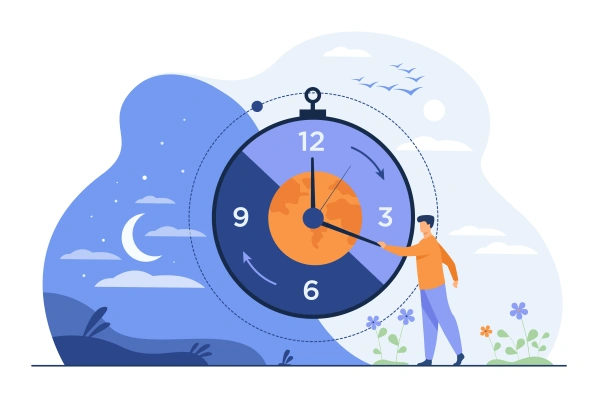19 Practical Techniques to Improve Creativity
Creativity is one of the important factors in creating success where the future is concerned.
Like any habit, creativity can be learned and requires practice for one to excel in it. On the other hand, non-creative behaviour is learned, as George Land and Beth Jarman concluded (Breaking Point and Beyond).
What is Creativity?
Creativity is the process of finding new ways to do things. It involves bringing new things into being. You develop an eagle’s view of how better the world would be should the conceived idea you have be birthed out.
That process through which you call out that brilliant world-changing idea into reality is what we term as creativity.
Now, let’s dive in to discover various practical techniques you can employ to improve creativity.
Techniques to Improve Creativity
1. Reading
Reading will stimulate your brain. It pushes the mind to perceive and comprehend things without actually being shown. When reading, you are placing other creative ideas in your mind and igniting your thoughts around the subject.
Being a regular reader will inevitably boost your brain’s capability for creativity.
Reading about other successful and creative people will stimulate your brain even more. Biographies of creative people allow you to learn and expand your horizons. It reveals what challenges you are likely to face and how to overcome them.
2. Journaling
Write and keep a journal of the creative ideas you have produced. This will help reflect on what you have done and look for other possibilities. These creative ideas later serve as inspiration.
Equally, when a creative idea or a piece of an idea comes to you, make it a point to record it in a pocket-sized notebook that you can carry with you or in a smartphone notebook.
A notebook is better in that your phone allows for distractions, plus you can hardly draw on your phone.
3. Brainstorming
Brainstorming is a powerful tool for improving your creativity. You could write down connected ideas and potential solutions with the aim of generating as many ideas as possible. You do this fast, without much examination and self-criticism.

After writing, take time on expounding and refining your ideas so as to arrive at the best possible choice.
4. Listen to Music
Music sets the right mood and boosts creativity. Some relaxing music or instrumentals are very favourable to creative thinking. Music prompts an emotional response, which in turn stimulates our creative thoughts.
Instrumental music works best for most people as music with lyrics tends to drift our minds off to what is being said.
We can, of course, work with music with lyrics when we are so absorbed in creative thinking, but excluding expressive music and selecting instrumental music might work better.
5. Taking a Break
Stepping out of the office, walking around, or just engaging in non-productive activities is important for encouraging creative thinking. Such breaks for sure do aid in producing some of the best creative ideas.

Making a spatial detachment between yourself and an idea allows for the improvement of creativity and inspires problem-solving. While you may want to tackle critical problems when you are at your highest level of attention and concentration, more creative ideas more often than not come to a calmer mind.
6. A Change of Environment
It is said, a change is as good as rest. Take a trip out-of-town and revitalize your creativity. When travelling is not an option, you can change the walls of your house or office. You could do this by changing the colour of your wall from a dim to a brighter colour or vice versa.
You could also employ the use of wallpapers, modify lighting, and any other decorations you find fit.
You might not have much control over your work environment either; however, take advantage of opportunities to periodically work in different areas of the office. These adjustments could convert to a noteworthy creativity improvement.
You could also take a new road to work or use different transportation. Hold consultations outside. Explore a new neighbourhood. Go to a gig. Just make sure you get yourself out of your comfort zone.
Changing your environment will provide you with a new viewpoint.
7. Doing Something New
Engaging in new activities inspires new ideas and gives you a different perspective. This involves exploring and going out of your comfort zones. For example, you could eat new foods, meet new people, try new games, or a new style of dressing. Change for a day.
For instance, new people can help you learn new things and understand things from dissimilar standpoints. Meeting new persons and listening in on their story can be an informative experience. Engaging in new activities is a creative endeavour.

You can also pursue other interests. Expanding your creativity avails an opportunity to practice your creativity in fresh ways, even within the same scope. You could, for example, attempt to play the guitar if you play the piano.
As a writer, you could try photography. If you are good at singing, you could attempt acting or directing plays. It is important not to limit yourself.
Doing things differently and changing routine often helps to engage your brain in new ways, which in turn prevents it from the autopilot mode of operation. This forces the brain to engage with the new that is happening in its world and hence greater creative thinking.
8. Meditating
Meditation helps to calm you down, give you clarity, insight, and increased focus. When the mind is calmed and refreshed, it is open to creative thoughts and superior ideas. Meditation unravels mental potential in that it organizes your thoughts and increases productivity.
In addition, meditation increases emotional drive. Individuals who have developed the discipline of meditation are able to manage moodiness, anxiety, and hopelessness.

Creative people also tend not to lose freshness in that; they always find ways for appreciation and awe, as opposed to tuning out based on the supposition of having experienced something before.
9. Physical Exercise
Physical activity stimulates your brain. This may include going for a run, pushups, sit-ups, rope skipping, or even yoga. Exercises loosen up the body, and our mind disconnects from work, and in such moments we find deeper creativeness.
10. Bounce ideas
When you share an idea around with people you trust, you will develop creative ideas from their opinions, especially if they think differently. During a conversation, someone might mention something that might ignite a different line of thought.
Some creative ideas are created by teams of people who jointly brainstorm innovations within the team. They bounce ideas, ask questions, and improve until a product is perfected.
It is therefore important for you to possess the ability to be a valuable team player who is capable of bouncing creative ideas to the next level.
11. Sleep
Sleep or take a nap, especially when you are unable to process a solution. You are likely to develop a better solution in the morning when you are refreshed.
This is because sleep helps the brain see the link between separate ideas, hence more creativity.
12. Sarcasm
Sarcastic people seem less frightening than angry ones. Just hearing sarcastic communication of rage can help solve creativity problems.
13. Daydream
Guess what; allowing your mind to wander is never a crime. We sometimes have a tendency to develop creative ideas when our mind zones out from work.
You could allow yourself to drift off while focusing on something you associate with the highpoint of creativity, such as a logo or a piece of art. Allow your imagination loose, and do not be afraid to be trivial. Daydreaming is an exercise in creativity.

Daydreaming comes easily when you are bored because when you are always busy, you don’t leave any allowance for your mind to wander. When we are not busy, we hardly go a moment without being entertained by our mobile device, television, movies, magazines, video games, just to name a few.
Occasionally, it is important to switch your devices off and sink into a state of boredom to facilitate creativity.
14. Work Under Pressure
Limits push us to get creative. Time constraints or limited options can be conducive to creative thinking. Most people find themselves procrastinating until the last minute, and when it is too overwhelming, their creative thinking is at its best.
It is important to try and set your own constraints like writing a poem in a short span of time, write freehand, using two colours to draw a portrait, look for a puzzle to solve, set regulators and enforce deadlines on yourself.
Just make it hard for yourself and watch your cognitive agility improve.
If you are constantly absorbed in your comfortable daily routine, your mind will run on autopilot. Overloading yourself will jolt you into a higher level of attentiveness.
15. Make Something
Engage your brain by putting parts or pieces together. Every time we engage in a physical activity that we haven’t done previously, it inspires our brains in innovative ways and can contribute to creativity.
Make a boat from paper, fix a broken toy.

Just build something, especially when you feel like you are jammed.
Creativity needs nourishing. This implies that you have to always free your attention from the hustle and bustle of your everyday work. The idea is not to feel beaten when you hit a roadblock.
16. Lateral Thinking
Creativity is certainly about being able to think in a different way from how we are used to thinking. Lateral thinking, therefore, involves looking at a situation differently.
Over time our brains get used to solving problems in a habitual, traditional, and linear fashion. For you to end the usual pattern of thinking, you could employ the use of puzzles and any exercise that forces you to think in new ways.
Sudoku and crossword puzzles, among other puzzles, can challenge your fixed ideas and force you to develop creative solutions.
17. Change Viewpoint
This involves trying to picture yourself in other people’s shoes. It is possible to develop a tendency as a creative thinker to get too attached to your work. This means you could be too close to notice that there are mistakes visible from a distance.

Thus, it is important to share your creative ideas with other people in order to get a fresh pair of eyes to take a look at your work. By so doing, you will be encouraging constructive criticism.
18. Ask Questions
We become used to how things function in our lives, and we no longer question the incongruity of them the way children are always asking. Children have very creative and distinctive elucidations of the world around them.
Some of the silly things we do, we do them just because we have always done them in that way.
It is an uphill task to clear your mind and play a completely innocent role. However, if we do this regularly, our observations become interesting. When you have a renewed wonder, you will view problems and offer solutions uniquely.
Ask questions during a conversation or when listening in a class, or when hanging out with friends. Being interactive by asking questions will give a better grasp of the other person’s emotions, thoughts, and insights, which in return expands your own creativity.
19. Practice Daily
Dedicating time in your day to keenly think is important as far as developing your creative abilities. Practicing your craft every day will help you achieve the kind of creativity you desire in your profession.

It is important not to put off your efforts. Each day put time, set a goal and enlist the help of others.
Conclusion
Creativity is an inherent human ability that we all can and should improve. Creating something out of an idea you have breaths into you fresh breathe of fulfillment and purpose in life. Without creativity, improvements would halt, relationships would wither, and life would be boring.
We need creative solutions to the difficult problems we are facing today. Being acquainted with the techniques of improving creativity and putting them into action will produce excellent results and exceptional ideas.
About the Author
Eugen Spivak is a multi-award-winning author, business strategist, and a business coach. Eugen is the founder of the Canadian Institute of International Business, an organization focused on a better way to learn business!
Study With Us!
We offer practical courses in various areas of business. Our instructors have at least 10 years of practical experience in their fields.


